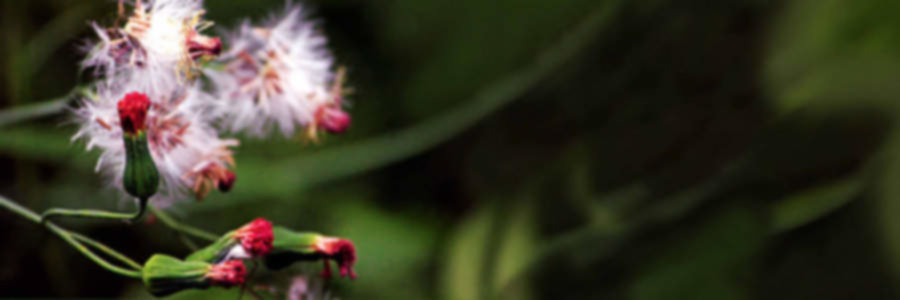The Mu’tazilah (from i’tazala, “to remove oneself” or “to withdraw”) is one of the philosophical schools whose doctrines were affected by Greek philosophy. Originally the sect was established by Waasil Ibn ‘Ataa’ (80-131Hj/699-748 C.E.), who withdrew (i’tazala) from the circle of al-Hasan al-Basri (d.110Hj/728) because of his opposing view that the Muslim who commits a grave sin was neither a believer nor a kaafir , but somewhere between the two (manzilah baynal- manzilatayn ). This marked the beginning of this so-called rationalistic sect. In its early stages its concepts were close to those of the Khaarijites. In the third century of Hijrah, the Mu’tazilah became influenced by the Shee’ah. The Mu’tazilites teachings were further developed under the influence of the Greek and Persian ideologies leading to the birth of ‘ilmul kalaam(scholastic theology).
Some of the main corrupt beliefs of the Mu’tazilites include:
(1) Denying the Attributes of Allaah.
(2) Claiming that the Qur’aan is created. They were able to influence theCaliph al-Ma’moon (in 212Hj/827) and enforce this belief along with other distortions. Their scrutiny was a virtual inquisition. Many scholars were jailed and/or killed. Imaam Ahmad bin Hanbal was tortured and jailed for his great stand defending the truth held by the salaf that the Qur’aan is the uncreated literal Word of Allaah. His great stand together with afew other scholars, led to the decline of the fitnah, and the Mu’tazilite doctrine was suppressed under the Caliph al-Mutawakkil (ruled 232-247Hj/ 847-861).
(3) Claiming that man’s action is totally independent from Allaah’s Will. This is in direct opposition to what the Qur’aan and sunnah have affirmed, namely that man has the ability and the will to act, but like all other things, nothing escapes the Will of Allaah, the Most High.[107] (4) Denying the general intercession for the sins committed by the disobedient Muslims and which Allaah approved for the Prophet (Peace be upon him) and others on the Day of Resurrection [See earlier in the text].Blended under the title of “rational” this sect exists nowadays without openly carrying the same title it once held. The approach and methodology of those who make the intellectual proofs supersede the text (from the Qur’aan and sunnah ) is widespread. The opposite extreme is those who believe that rational evidences has no role whatsoever in implying many things which the textual evidences have proven. The medium path is that of the salaf , which affirms an implicative relationship between the textual evidences and intellectual proofs. The shar’ (the Qur’aan and authenticsunnah) lead and guide to the intellectual proofs and the latter share in guiding to many things which the shar’ implies. Basically, therefore, there is no contradiction between the two, but to the contrary, there is association. The basis for this relationship, however, is the shar’, and not the intellect, as the rationalists from theMu’tazilites and the latter Ash’arites claim. This is because the shar’ is indispensable in itself and is not in need of our knowledge and reasoning. We are the ones who are in need of the shar’ and of its knowledge. So if the intellect knows the shar’ it attains a perfection which it lacked before. But if it fails, then it will remain ignorant and deficient.
In addition, the human intellect is one of the comparative or relative matters. Ahmad may know something by his intellect which Hasan’s intellect is totally unaware of. The same person may know of something under certain conditions which he may not know of at a different time and (or) state. The fact is that people have different levels of intellect in accordance with what Allaah (Subhanahu wa ta’alaa) bestows upon them from reasoning, awareness, contemplation and deduction, and differentiation.
It is natural that the intellect may err and fall in contradictions and /or differences in matters to which it may be subjected. So, those who say that the intellect should be given precedence to the shar’ are referring people to something to which there is no way to affirm and perceive its correctness. That is why many of the sects differed and split amongst themselves when they gave precedence to their rationalistic dogmas vis-à vis the textual proofs. The irony is that each of these groups say that the intellect stands to support their positions! Another irony is that the top theologians who laid down many of these dogmas went into perplexity and confusion. Many of them like Imaam al-Juwaynee, Ar-Raazi, al-Ghazaali, and others, regretted their positions and asked Allaah to let them die on fitrah . In their cases, there is a lesson for those who still reiterate the same dogmas from the latter Ash’arites , Mu’tazilitesand many of those who exaggerate the role of the intellect! A great reminder for all is the saying of Allaah I about the shar’:
{ وَلَوْ كَانَ مِنْ عِنْدِ غَيرِ اللهِ لَوَجَدُوا فِيهِ اختِلافاً كَثِيراً } [النساء:82]
Had [the Qur’aan] been from other than Allaah, they would surely have found therein much contradictions. [Qur’aan, Soorat An-Nisaa’ (4:82)].
The authentic sunnah is a Revelation from Allaah and the Prophet (Peace be upon him) said: “I have been given the Qur’aan and something like it along with [i.e. the sunnah ]”. [108] The shar’ with its textual proofs guiding the intellect are from Allaah, and that is why the salaf who correctly understood this relationship were, by Allaah’s help, saved from falling into perplexity and confusion! All Praise is due to Allaah.
Source : From the Appendix of the Book,
Tafseer Ayatul-Kursi – By Shaykh Muhammad bin Saalih Al-’Uthaymeen
With Related Points of Benefit From the Shaykh’s Commentary on Imaam ibn Taymeeyah’s Sharhul ’Aqeedatil-Waasitiyyah, Prepared by Dr. Saleh As-Saleh (rahimahullah)
FROM: https://abdurrahman.org/2011/11/06/the-mutazilites/.
Share this, Baarakallaah Feekum: [“One who guides to something good has a reward similar to that of its doer” – Saheeh Muslim vol.3, no.4665] [This website protects the copyrights of the authors/publishers. The Content is posted on this website with implicit/explicit permission from content owners. If you find any copyright violations please inform the same.]




